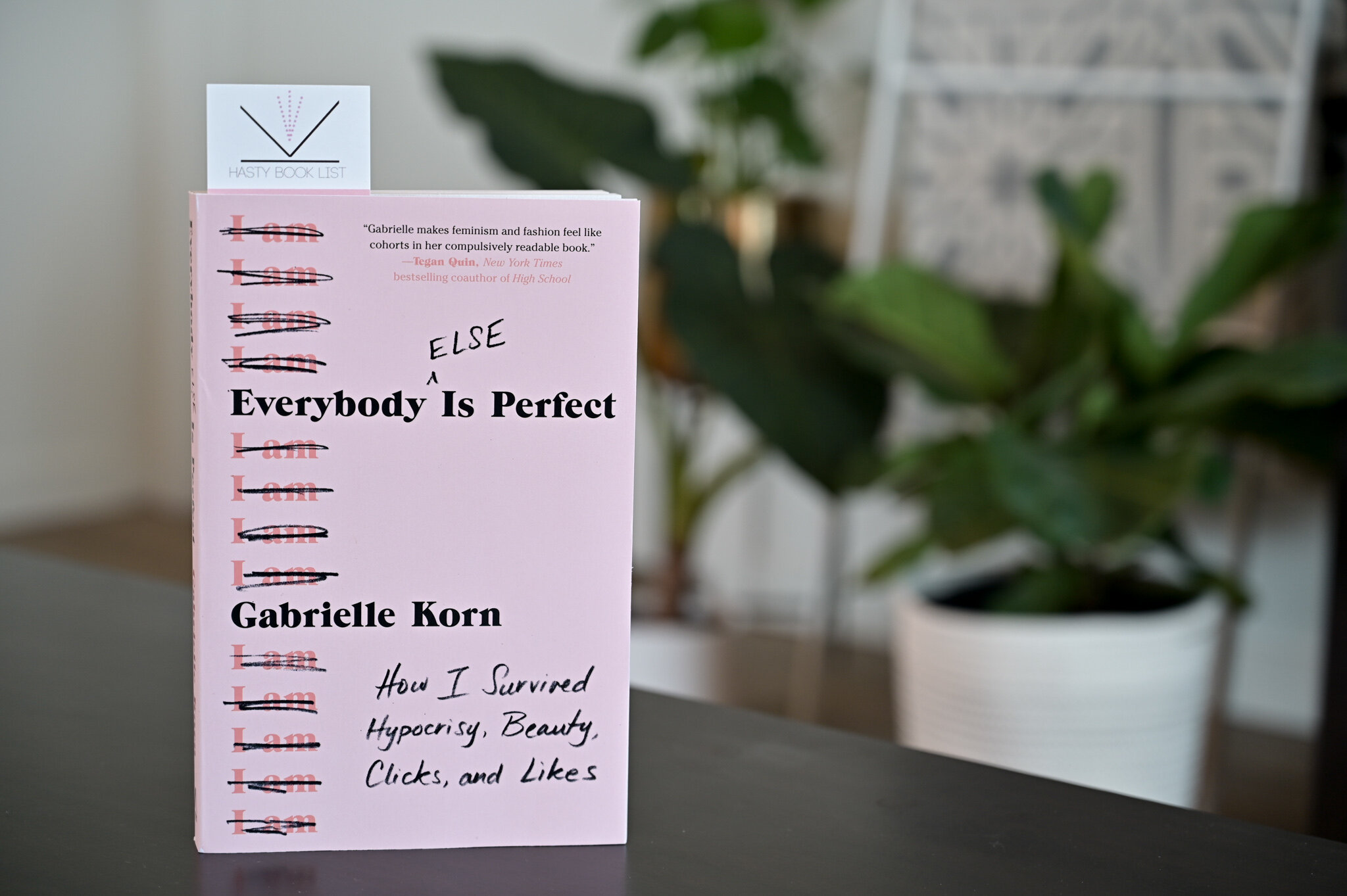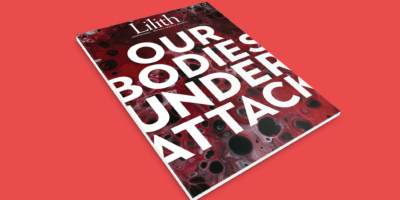
Confronting the Fashion-World from Within
Gabrielle Korn is trying really, really hard. That’s clear from page one of her new book, Everybody (Else) Is Perfect: How I Survived Hypocrisy, Beauty, Clicks, and Likes [Atria Books, $17.00]. She wants, with her entire (queer, feminist, body positive, anti-racist, Jewish) self to make women’s media better. In this sharp, funny and intimate memoir, Korn recounts her battles to radicalize her workplaces, from Refinery 29 to her term as the staggeringly young editor-in-chief of Nylon magazine from ages 28-30. And then, seemingly at the height of her career, Korn quit her job.
Amongst her battles are successes, quite a lot of them. Under Korn’s tenure, Nylon’s entire brand became about the inclusivity that she championed, increasing the number of women of color and size on the cover and publishing––to acclaim––articles about political activism, queer identity, and unconventional beauty. The contradiction that Korn recognizes again and again is that to make women’s media better means to make it…not women’s media.
There is a fundamental contradiction between working in an industry that profits from beauty culture, no matter how expansive, and the kinds of genuine inclusivity that Korn champions. And she knows it. Much like “lean-in feminism”––about which she comments that it’s better to have it than no feminism at all––a kinder, gentler women’s media is worth fighting for.
There can be no ethical consumption under capitalism, but there are worse and better versions of it. Magazines that feature only (too) thin, white, straight-presenting, highly retouched women as the impossible-to-achieve beauty ideal is the worst version. Korn’s version is better. Body positivity celebrating all kinds of sizes and shapes is better than the narrowly defined ideal that still dominates the industry.
But isn’t it even better not to have the body as a commodity to be capitalized at all? Isn’t body neutrality, in which the body is neither celebrated nor derided but allowed to just be, the best version? That won’t sell magazines or generate clicks. And no matter how glamorous the parties and how great the clothes and how thrilling the challenges and how significant the power, it’s still quite soul-destroying. For Korn, the cost––to her own body, as she deals with anorexia, and to her own soul, as she tries to make it all work with not enough hours in the day or food in her body––is too high.
In her heyday as editor in chief, Korn was super-busy: thousands of emails, massive responsibility, huge pressure to look the part. Which meant that this book was written largely on the subway and on the walk to work. She’s an engaging writer, and her breezy format mostly works, but this is an overlapping series of essays, each one focusing on an aspect of her job and life, which means a lot of repetition. On the one hand, this creates a kind of intimacy: when we hit a story we have already encountered, we feel like insiders, but it also feels like we’ve been there before. And while she deals with a very serious, and dangerous, eating disorder, the lightness of her narrative touch reproduces precisely the problem she describes: sometimes, given how glamorous her life is and how much she is lauded for her style and look, it almost seems like the pain is worth it.
She’s upfront about the ways in which her queerness and her Jewishness are only sometimes visible, and she absolutely acknowledges the ways that she can control and strategically deploy her visibility. She’s clear that, unlike many of the people whose representation she fights for, she herself fits well into the idealized standard.
She’s smart, and passionate, and I agree with her values. I want to be her friend. I too love clothes, and I too would like to feel okay about that. Korn gives me an out, making a distinction between loving clothes and loving fashion. Fashion is the industry, the culture. Clothing is mere self-expression. I’m not sure that distinction quite holds up, but maybe it doesn’t need to. It’s enough to see someone who challenged the norms of the industry and kind of won by expanding the conventional definition of “cover model” or even beauty itself.
As much as has changed with visibility, and representation, and body positivity, there’s still something hollow at the core of this world of beauty, so I wish Korn had stayed longer with the point she is trying to make.
—Sharrona Pearl is Associate Professor of Medical Ethics at Drexel University. Her latest book is Face/On: Face Transplants and the Ethics of the Other.






